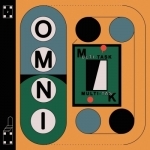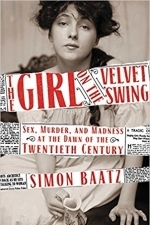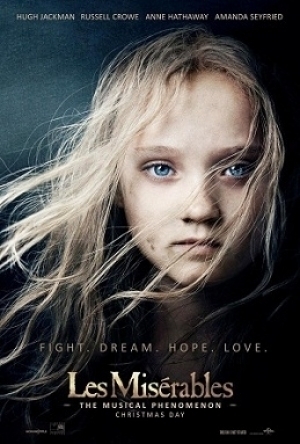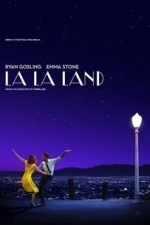
Blueprint 3D
Games
App
AN ENTIRELY NEW GAMING EXPERIENCE **USA TODAY: Rating: 4 stars (out of 4) "In the crowded market...

My Town : School
Entertainment and Games
App
The bell is ringing at the My Town : School! Let your child show you what they’re in their...

Dust: An Elysian Tail
Games and Entertainment
App
"This is one of the best games I've played on iOS this year." 5/5 - Touch Arcade The award-winning,...

Multi-Task by Omni
Album Watch
RIYL: Preoccupations, Orange Juice, Josef K, Fire Engines, Franz Ferdinand, Parquet Courts, Spoon,...
alternative rock

The Girl on the Velvet Swing: Sex, Murder, and Madness at the Dawn of the Twentieth Century
Book
From New York Times bestselling author Simon Baatz, the first comprehensive account of the murder...
crime non-fiction

Blueprint 3D HD
Games
App
AN ENTIRELY NEW GAMING EXPERIENCE **USA TODAY: Rating: 4 stars (out of 4) "In the crowded market...

Demi Lovato: Path to Fame
Games and Entertainment
App
New Season! DEMI LOVATO: PATH TO FAME -- In Season 3: Confidently Me, you star in your very own...
Gareth von Kallenbach (980 KP) rated Les Misérables (2012) in Movies
Aug 7, 2019
For years I studied and sang opera. I know music and I’ve sung my fair share of Les Mis pieces in my past. I adore Victor Hugo and “Les Misérables” is by far one of my favorite literary works. When I began to watch this movie, I was keyed up to be critical on the vocal spectrum, the literary aspect, and the representation of one of my favorite Broadway/London pieces. To be frank, I wasn’t disappointed at all.
For those unfamiliar with Hugo’s work or what to expect with Les Mis, let me give you a brief synopsis on its plot and the history of the French revolution in which this takes place. France has just endured her infamous Revolution (the one with the guillotine, Marie-Antoinette, and the Sans Culottes movement) and her people are still suffering. There is no money for food, the country is in the midst of a depression, and the Napoleonic regime is yet to come to fruition. Thus, you find Fantine (Hathaway), a poor but determined (and beautiful) woman trying desperately to make enough money to support her daughter, Cosette, who resides with friends in another city. The book reveals that Madame Thénardier (Bonham-Carter) and her husband, Thénardier (Baron-Cohen) were supposed to be taking the money that Fantine had given to them to provide for her daughter, Cosette. Instead, however, Cosette is forced to live in absolute poverty while Thénardier’s daughter, Eponine, lives the life of opulence. Meanwhile, Jean Valjean (Jackman), an ex-convict, is trying desperately to find legitimate work after his stint in prison for stealing a loaf of bread to provide for his starving family. The infamous policeman, Javert (Crowe), feels Valjean will re-offend and makes it his mission to pursue Valjean until the end.
Finding the world a terrible place as an ex-convict, Valjean seeks to steal from a church her silver, believing he has no other way to survive. It is the love of a good priest, however, who gives Valjean the silver he seeks under the pledge he will become a servant of God and provide for others the same good he has provided for him. Thus, years later, we find Valjean a reformed man (who has skipped on his parole and assumed a new name), running a factory in which Fantine works. And so, when Fantine is fired from her job and takes to a life of prostitution in order to provide for her daughter, it is Valjean who feels the burden of her demise and takes it upon himself to save Cosette and raise her as his own.
Of course, this entire time, Javert is pursuing Valjean and a new revolution is starting to take place amongst Paris’ people. Years later we find Cosette grown to womanhood (now played by Seyfried), and falling in love with one of the revolution’s key players, a youth by the name of Marius (Redmayne). The Thénardiers are back again and we find their once-grand lifestyle has resorted to a life of gutter-crime and Éponine (now played by Barks), is desperately in love with Marius as well (although her love is unrequited). For those unfamiliar with how the story plays out, I will leave it at that.
I will caution those who have never seen this play to prepare for a long show. It is very dramatic and very intense, but visually breath-taking and emotionally moving in so many ways. Vocally, there are times when the legato is lacking and some transitions seemed forced (Crowe struggled many times with allowing his natural vibrato to come through instead of pushing a sustained note; Seyfried’s vibrato is very trill-like and sometimes distracts from the pure quality of her spinto-soprano range). However, I must say that I was blown away by Hathway’s performance (she brought me to tears with “I Dreamed a Dream” due to her emotional rendition) and her ability to truly escape into her character. Similarly, Tviet (he played Enjolras) was stunning with his vocal command and Redmayne was equally as impressive. Jackman will amaze you with his rich tenor and, surprisingly, I found Crowe to have a fantastic baritone when he didn’t force his work. Baron-Cohen and Bonham-Carter provided a much needed comical respite throughout the film (and both sing beautifully as well, although this movie didn’t focus on their vocal command as much). Barks did a lovely job for most of her work; although I found her rendition of “On My Own” a bit forced (she is a true mezzo but seemed to push her high notes, although this may have been where her voice shifted into her head voice which is no fault of her own).
Overall, if you are an avid musical lover and have been waiting for a proper rendition of this production, this movie will astound you. Visually, the movie is breath-taking and the acting is absolutely fantastic. I’m still haunted by the revolutionary song, to be honest. If you’ve been waiting for a musical worthy of the big screen, this one is it. Look for it to sweep the Oscars this year.
This movie deserves an A all around.
Bob Mann (459 KP) rated La La Land (2016) in Movies
Sep 29, 2021
“La La Land” tells the bittersweet love story of Sebastian (Ryan Gosling) and Mia (Emma Stone) who first meet in an LA traffic jam but then get thrown together by chance (LA is such a small place after all!). Over the course of the next four seasons romance blossoms. Mia is a struggling actress bouncing from audition to audition in a hopeless attempt to break through in LA’s tough movie business. She makes ends meet as a Barista on the Warner Brother’s lot. Meanwhile Sebastian is on a mission of his own: a talented musician, he is trying to restore jazz to the main stage (something the film’s soundtrack will undoubtedly help do!) by opening his own classic jazz bar. As both strive for success on their own terms can love survive to deliver us the classic ‘Hollywood ending’?
The film is technically astonishing, with clever continuous shots of the “Birdman” variety and masterly cinematography (by Linus Sandgren of “Joy” and “American Hustle”). The lighting team in particular is superb: a case in point is Mia’s ‘in-Seine’ (sic) song, with breathtaking fades of the background to darkness, a camera whizz-around the actress for effect and then a brilliant fade back to reality. Loved it. Overall, there are enough similar moments in the film to make cinema-lovers like me gasp with delight.
There’s a curious timelessness about the piece which is surely deliberate. While there are obvious and non-apologetic throwbacks to the classic musicals of the 50’s like “West Side Story” and “Singin’ in the Rain” and references to both “Casablanca” and “Rebel without a Cause”, there is also a 60’s vibe to the ‘girls getting ready’ sequence; an 80’s A-ha cover thrown in at a pool party; and a Californian Prius obsession that is surely more ‘noughties’ than current. Most curiously, while everyone has smartphones noone seems to text anyone to announce changes to plans: the film is almost distancing itself from much of modern life.
In the acting stakes Emma Stone again shines like a beacon. She is just magnetic on the screen: the biggest plot hole in the film (tiny spoiler) is why on earth she wasn’t given the part for her first audition! I was disappointed she didn’t win the Best Supporting Actress Oscar for “Birdman” in the “87th Awards” (she lost out to Patricia Arquette for “Boyhood”): but she just keeps getting better and Better and BETTER.
Ryan Gosling’s confident and cocky turn also radiates charisma: in particular, it is astonishing that Gosling could play “only a few chords” on the piano before training for the film. A confidence boost for struggling piano learners everywhere.
It is actually difficult to imagine two better actors for the roles. (Emma Watson allegedly turned it down for “Beauty and the Beast”: something she might be kicking herself for!) Are they both the best singers and dancers when compared to Gene Kelly, Fred Astaire, Debbie Reynolds (R.I.P.) or Cyd Charisse? No, undoubtedly not, but they have an undeniable charm all of their own. (Perhaps we will see the ilk of the great hoofers and crooners rise again with a resurgence in the classic musical. Can Hollywood take a hint?)
The big question: now that both Stone and Gosling have won Golden Globes for acting in the “Comedy or Musical” category, can they convert that to Oscar glory where there is a single category in play? I’d like to think so.
It’s also great to see proper movie-making taking place in the Hollywood studios again: during my recent visits to LA there seemed to be little other than TV work going on in the main studio complexes there (although its worth pointing out that for this film not all of the filming was actually done on the Warner Brothers lot). (As an aside, the Warner Brothers tour – which you need to book well in advance – is a GREAT day out for movie lovers, with a Sunday visit giving you the best access to live sets. #insideknowledgetrivia: that small grassy triangle with the gravestones on it is where they filmed many of the “Friends” outdoor scenes such as the baseball match!).
Musicals are clearly measured by the quality of the music, and Justin Hurwitz (“Whiplash”) has produced a gem with – notwithstanding the jazz numbers and a catchy little pop number from John Legend – merely a handful of simple but unforgettable melodies that recur in different variations throughout the film. The soundtrack is already in my Amazon library and uplifting my mood on what is a damp and dreary Monday here in the UK.
Damien Chazelle has delivered a triumph in both direction and original script. There is really very little I can fault the film on. In what was the somewhat patchy Coen brothers offering from last year – “Hail Caesar” – there was a standout moment of a throwback song and dance number with Channing Tatum that I raved about (you can catch it here). If I was being picky, then this tantalising snippet would be a better representation of the style and vim of the original genre – – with the exception of the opening number, few of the song and dance numbers in “La La Land” quite get to that “Broadway Melody” level of scale and energy. This, together with a few concerns about the pacing in some places, led me to rate this as a 4.5 on first viewing.
However on now seeing it twice within 36 hours, it’s got me well and truly under its spell! I normally emotionally resist films that arrive with excessive hype… but, in this case… I give in.


